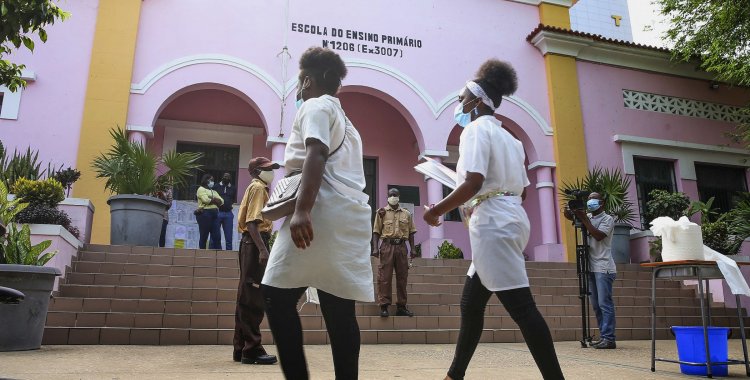Arminda Milena Ernesto, in statements to the Lusa agency, expressed her indignation about the internal regulations of some schools on the use of haircuts, which she associated with an imposition of values associated with colonization.
Last Saturday, she organized a protest to attract the attention of Angolan society, but the march was stopped by the police, despite the fact that the promoters concentrated on the spot because they had little time to demobilize the participants.
According to Arminda Milena Ernesto, the problem is an old one, but this year an episode with a 10-year-old child widely publicized on social networks awakened citizens to the problem.
"Last year we had already taken to the streets because of the injustices that the schools had committed by shooing students away because of their long hair, without any explanation. We took to the streets without any positive response from the Ministry of Education and this year it happens that the boy Hugo, 10 years old, was expelled from the class for having long hair, and the school claimed that it was for hygiene reasons", he said.
The lack of equality in the treatment of these cases between students with dark and lighter skin, continued the activist, professor by profession, is what most worries the community.
"What is not understood is how in a group of blacks and whites, the white remains in the group and the black goes out, alleging that he has to cut his hair. It's not just the boy Hugo, there was also a boy from 5 years old, Hazael, who was kicked out of the room for having long hair, and the girl Leonilde, because she had a hairstyle and the teacher said she had to comb her hair", she said.
For the activist, there is a lack of dialogue, although she admits that school regulations must be followed.
"I think that the only thing missing is dialogue. I understand that every school has a regulation that must be accepted. When you enroll your child in a school, you are faced with a regulation that you have to comply with", she stressed.
Arminda Milena Ernesto considers that the problem stems from colonization, but argues that "this imposition of values has to end now".
"The settler implemented in the head of black people that, to be more beautiful, they have to cut their hair, this is something that has to be demystified. This imposition of values has to end now", she defended.
"We are different from the whites, who have straight hair and can pull, our hair is our identity, it's our culture, and it serves to make different hairstyles", she reinforced.
Despite Saturday's episode, in which dozens of activists were detained by the police, the objective is to continue with the demands and awareness of the problem, with the involvement of other sectors of society, to "fight against this type of capillary racism".
The promoter of the march said that the statement issued by the Ministry of Education regarding the situation is not clear, but gives the idea of giving "the opportunity for any student to enter school with long hair without any problem".
According to the activist, the problem is large and affects state and private schools, with complaints from several schools across the country.
"There are parents who claim their rights, because they know the law, but there are others who do not master the law and do not know that there is equal rights", said Arminda Milena Ernesto, reaffirming the need to continue to fight "as students, as activists social".
"Right now, we are waiting, but if the cases continue, we will take to the streets again, we will reschedule a new march", she guaranteed.
In a circular dated 28 September, the Minister of Education, Luísa Grilo, guided schools to create "a harmonious environment of respect for difference and in the different ways in which each student's hair can be presented without, however, subverting the code of conduct and school discipline".
The document also underlines that the Education and Teaching System is governed by the principles of equality and child protection, provided for in the Constitution of the Republic, as well as by the principle of universality, provided for in the Basic Law of the Education and Teaching System "thus promoting combating all types of discrimination on grounds of an individual's ancestry, sex, race, ethnicity, color, disability, language of birth, religion, political, ideological or philosophical convictions".
The circular also mentions that school managers must obey the laws and must ensure the materialization of the general principles that govern the Education System and promote "strategies of permanent dialogue with the members of the school community in order to establish rules of school coexistence that ensure the comprehensive protection of the child against all types of discrimination".







